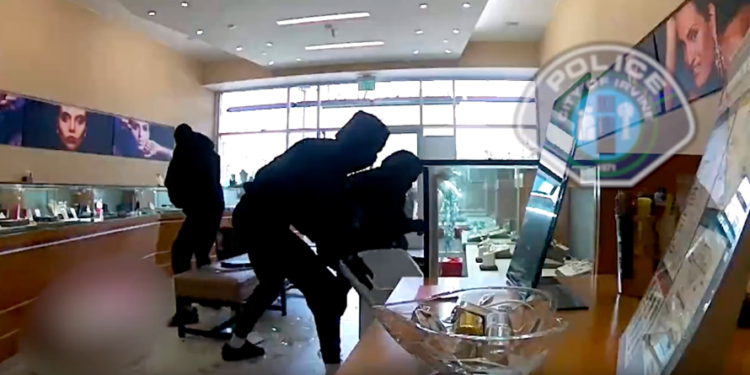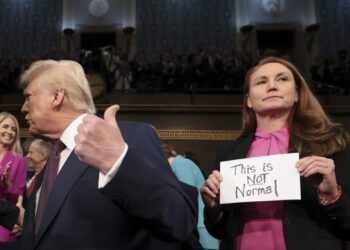LOS ANGELES (KTLA) – Police and prosecutors in California will have new tools to combat smash-and-grab theft and other types of property crime once the calendar turns to 2025.
A series of laws enacted by the legislature and signed by Gov. Gavin Newsom will take effect on Jan. 1. They include new methods for calculating the value of stolen goods to meet felony charges, lowering the threshold for police to make arrests for shoplifting, and increasing sentences.
“California’s new laws tackle today’s biggest emerging challenges head-on,” Newsom said in a statement on Monday. “We’re strengthening public safety, building more housing, and providing more resources for our communities. These practical reforms protect what matters most while creating more opportunities for all Californians.”
Retail theft is estimated to cost California businesses $20 billion annually.
AB 2943 by Asm. Rick Chavez Zbur (D-Los Angeles) allows the aggregation of stolen property values from multiple victims or across different counties to meet the $950 felony grand theft threshold.
SB 905 by Sen. Scott Wiener (D-San Francisco) permits the cumulative value of property stolen from vehicles over several incidents to be used to charge someone with automotive property theft for resale.
AB 2943 grants officers the authority to arrest individuals for shoplifting based on probable cause, even if the officer did not witness the crime.

Furthermore, AB 2943 extends the probation period for shoplifting and petty theft from one year to two years and provides an option for defendants under 25 to enter rehabilitative programs.
AB 3209 by Asm. Marc Berman (D-Palo Alto) authorizes courts to issue “retail theft restraining orders,” which can ban individuals convicted of certain retail crimes from entering the affected stores or their other locations for up to two years.
AB 2943 introduces a new offense, punishable by up to three years in jail, for possessing stolen goods worth more than $950 with the intent to sell, exchange or return them. This law simplifies prosecution by eliminating the need to prove the defendant knew the goods were stolen.
AB 1802 by Asm. Reginald Byron Jones-Sawyer (D-Los Angeles) removes the expiration date for the crime of organized retail theft and the regional property crimes task force.
AB 2943 also extends, until Jan. 1, 2031, the law preventing suspects of organized retail theft from being released on a simple promise to appear in court.
SB 1416 by Sen. Josh Newman (D-Grand Terrace) mandates enhanced sentencing for large-scale property resale operations.
AB 1972 by Asm. Juan Alanis (R-Modesto) includes cargo theft in the list of property crimes that regional property crimes task forces can address.
SB 1242 by Sen. Dave Min (now member-elect of the U.S. House of Representatives) imposes stricter penalties on thieves who set fires to aid in organized retail theft.
AB 1960 by Speaker Robert Rivas (D-Salinas) mandates additional sentencing for crimes involving the theft, damage or destruction of property valued over $50,000 during a felony.
SB 905 by Sen. Scott Wiener (D-San Francisco) closes the loophole that allowed automotive property thefts through locked doors.
SB 1144 by Sen. Nancy Skinner (D-Alameda) requires online platforms to gather information on all “high-volume third-party sellers” to combat the sale of stolen goods.
AB 1779 by Asm. Jacqui Irwin (D-Thousand Oaks) allows theft charges and related offenses from different counties to be consolidated into a single criminal case.
AB 2943 ensures that retailers are not penalized for repeatedly reporting incidents of retail theft.
Newsom signed these bills into law in August before California voters overwhelmingly approved Proposition 36, which allows for felony charges for possessing certain drugs and for thefts under $950 if the defendant has two prior drug or theft convictions.







